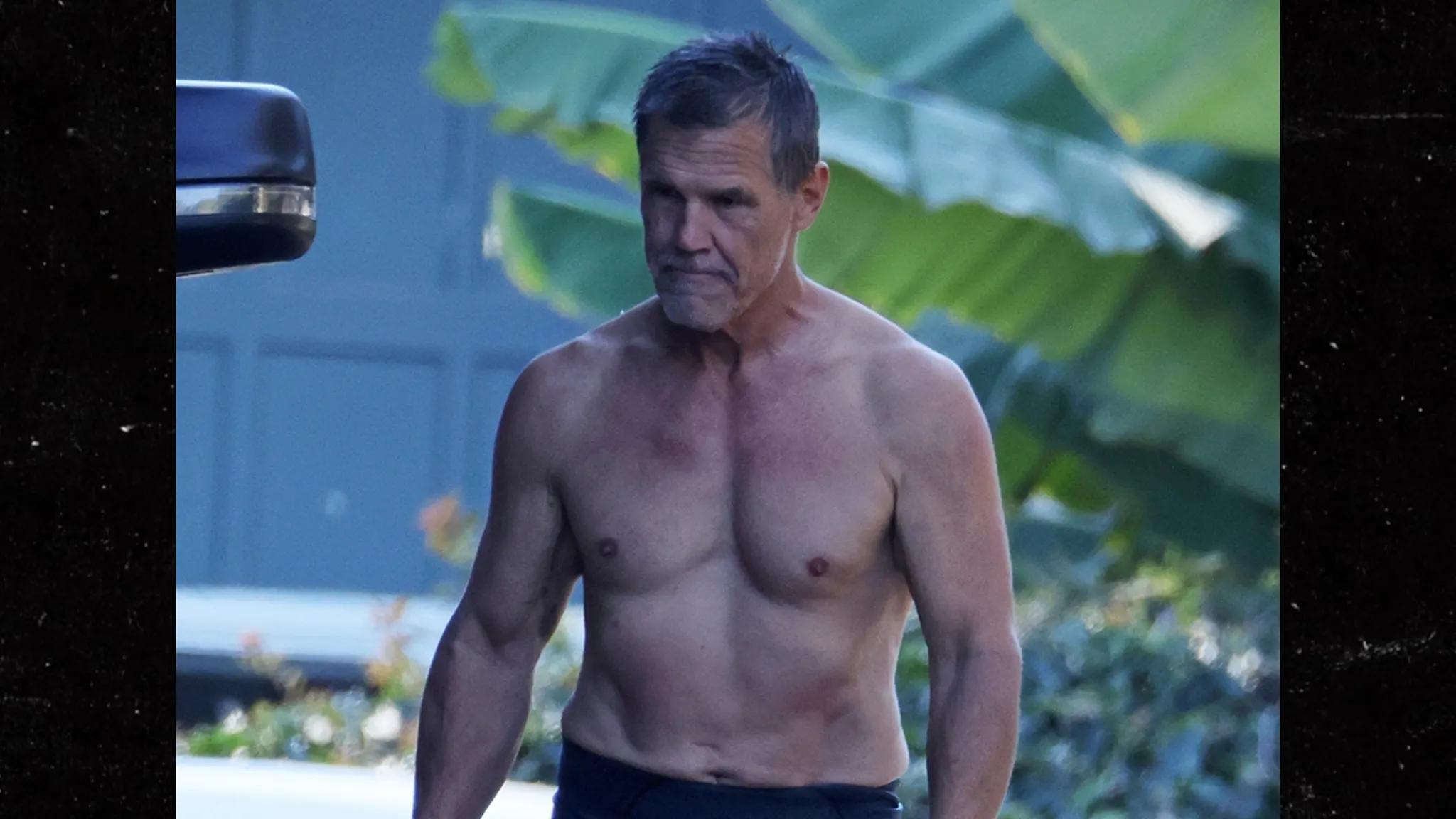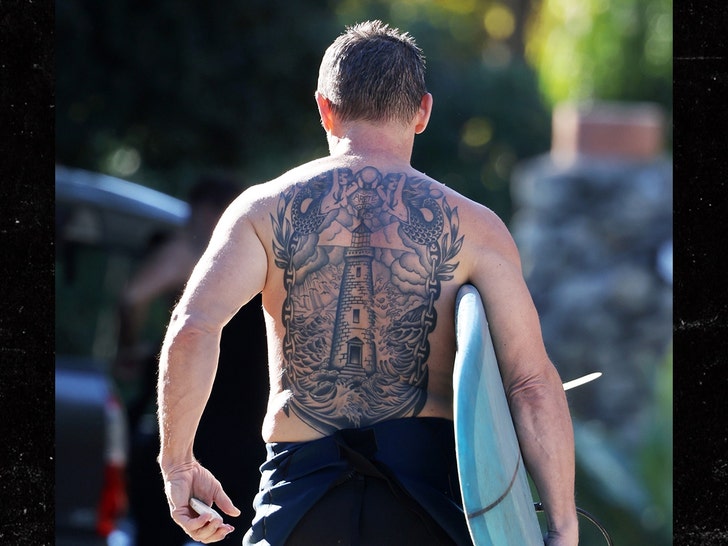Entertainment
Josh Brolin Reveals Massive Lighthouse Back Tattoo While Surfing

Josh Brolin
Sheds Light on New Lighthouse Back Tat!!!
Published
Josh Brolin looks ready to join up with a “Gangster Squad” … because it seems he may have some expansive new ink on his back.
The actor was spotted surfing in Santa Barbara Saturday … and, while walking to and from the water, he pulled his wetsuit down to let his torso breathe.
And, on his back, is a huge black tattoo … with a lighthouse rising from the waves, topless mermaids framing the scene and the word “aretê” — an ancient Greek word that literally means “fulfillment” and “virtue ‘– squarely between his shoulder blades
It’s a stunning art piece — defintely bringing to mind Ben Affleck‘s colorful phoenix ink which took up his whole back, too.
Waiting for your permission to load the Instagram Media.
It’s interesting because last year Brolin got a tattoo removed from one of his shoulders … thanking the company that did it for getting the “bulls***” off of him.
Brolin’s new ink looks real … and, we know he’s not totally against tats — because he recently gave his first tattoo, putting the ink on a fellow artist’s arm.
Bottom line … Brolin seems to be riding the waves and going with the flow — which clearly took him to one impressive tattoo artist!













